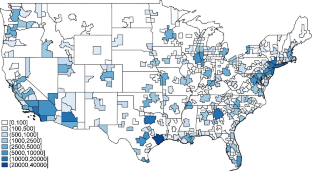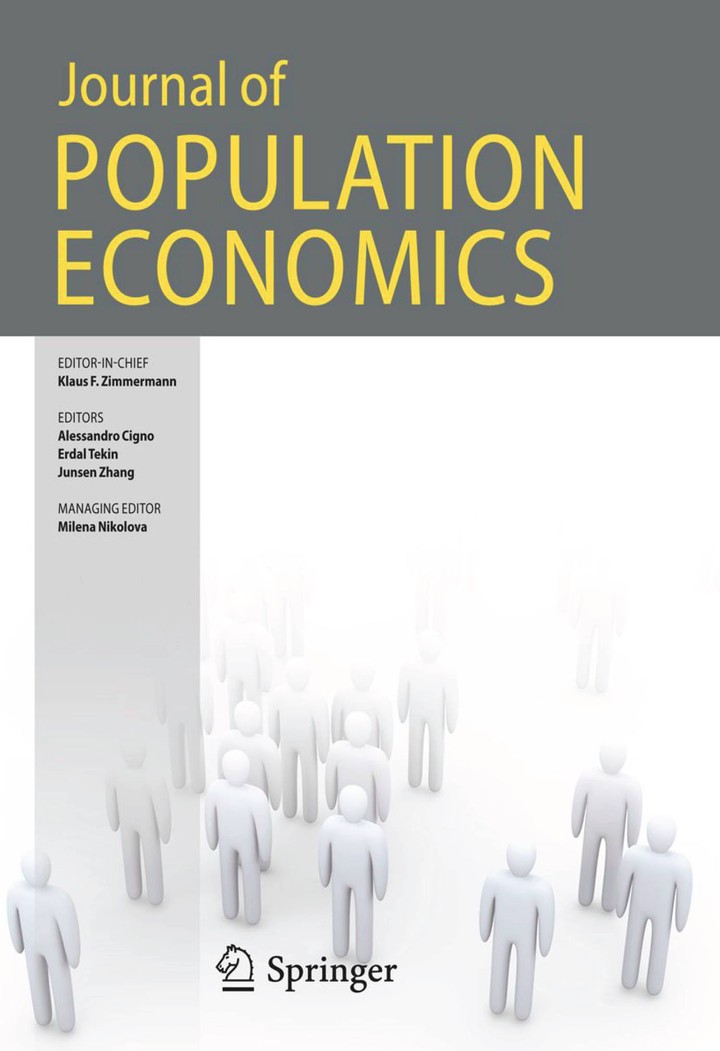移民执法与劳动力供应:混合身份家庭中的西班牙裔青年
IF 6.1
2区 经济学
引用次数: 0
摘要
本研究评估了在美国出生的西班牙裔青年因移民执法而产生的劳动力供给行为。我们借鉴了新增劳动力效应,强调移民执法行动是影响移民家庭劳动力供给决策的一个因素。我们认为,虽然移民执法减少了非公民的劳动力供给,但混合身份家庭中美国出生的西语裔青年的劳动力供给却增加了。利用当前人口调查和与移民相关的逮捕数据,我们发现意外的逮捕激增会使美国出生的西班牙裔青年的劳动力参与率增加 6 个百分点,每周工作时间增加高达 20%。本文章由计算机程序翻译,如有差异,请以英文原文为准。

Immigration enforcement and labor supply: Hispanic youth in mixed-status families
This study evaluates the labor supply behavior of US-born Hispanic youth in response to immigration enforcement. We draw on the added-worker effect and underscore immigration enforcement actions as a factor influencing labor supply decisions within immigrant families. We argue that while immigration enforcement reduces labor supply among non-citizens, the labor supply among US-born Hispanic youth in mixed-status families increases. Using the Current Population Survey and data on immigration-related arrests, we find that an unexpected surge in arrests increases labor force participation of US-born Hispanic youth by 6 percentage points and weekly hours worked by up to 20%.
求助全文
通过发布文献求助,成功后即可免费获取论文全文。
去求助
来源期刊

Journal of Population Economics
Multiple-
CiteScore
9.60
自引率
6.60%
发文量
50
期刊介绍:
The Journal of Population Economics is an international quarterly that publishes original theoretical and applied research in all areas of population economics.
Micro-level topics examine individual, household or family behavior, including household formation, marriage, divorce, fertility choices, education, labor supply, migration, health, risky behavior and aging. Macro-level investigations may address such issues as economic growth with exogenous or endogenous population evolution, population policy, savings and pensions, social security, housing, and health care.
The journal also features research into economic approaches to human biology, the relationship between population dynamics and public choice, and the impact of population on the distribution of income and wealth. Lastly, readers will find papers dealing with policy issues and development problems that are relevant to population issues.The journal is published in collaboration with POP at UNU-MERIT, the Global Labor Organization (GLO) and the European Society for Population Economics (ESPE).Officially cited as: J Popul Econ Factor (RePEc): 13.576 (July 2018) Rank 69 of 2102 journals listed in RePEc
 求助内容:
求助内容: 应助结果提醒方式:
应助结果提醒方式:


